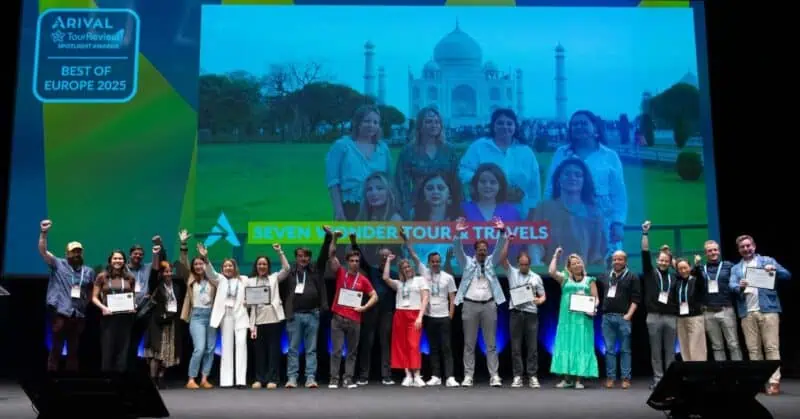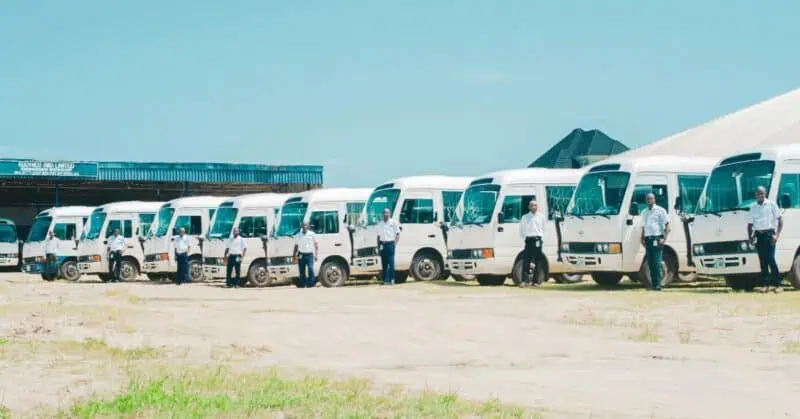The New Year means all too many predictions and “year in review” articles. We don’t want to add to the media fluff. But here are 12 trends we think every creator and seller of Tours, Activities, Attractions & Events should pay attention to this year. We don’t know how each of these will unfold, but the changes will affect everyone in our industry. Expect to see these themes drive a lot of discussion and sessions at Arival Berlin, Bangkok, and Orlando in 2019.
- Tour operating innovation: From Walks’ “Walk-on Walk-off” tour pass and Savor Seattle’s Tasting Passports to tour companies creating new experiences or reinventing classic ones, there are so many interesting companies reimagining the tour. Our industry is just getting started reinventing itself and we can’t wait to cover this story in 2019.
Why you should care: Consumer tastes change rapidly, so keep a close eye on what your peers and competitors are up to.
- Selling sustainability: The rapid growth of tourism and increasing worries about climate change means a greater need for responsible, sustainable tourism practices. But few travelers are willing to pay more for green travel, and our industry continues to struggle with how to make sustainable tourism profitable. It is happening, and we will see only more progress in 2019.
Why you should care: More and more travelers care, and they will want the tours and activities they choose to care too. Expect to see more attention to this topic at Arival events, starting with Berlin (check out the program).
- Branded tours and activities: There are very few global tour or activity brands, and none with the reach of a Starbucks, Marriott or Holiday Inn (Disney and Universal parks being notable exceptions). Many now are trying, with different models (e.g. franchising). Building a scalable, replicable touring model from city to city will not be easy, but with few industry standards and very uneven customer experiences, we think the opportunity is big, for those who can get it right. Expect a few of those vying to raise some capital in 2019 to power their growth.
Why you should care: Every tour and activity operator should consider what their brand is worth and whether linking up with a rising multi-market brand makes sense.
- Dynamic pricing. The days of unchanging seasonal pricing are numbered. The future is variable, when operators change their prices by days of the week, or even times of day, charging more when demand is high, and discounting for less popular times. Disney World just last fall launched dynamic pricing, but more and more operators are starting to mix things up.
Why you should care: Dynamic pricing can help drive more profitability and enable smarter discounting, which will give any competitor a big edge. If your competition is doing it and you are not, watch out.
- Connectivity: If the last few years have been about getting tour and activity operators around the world using modern booking software, the next few years will all be about connectivity: using APIs (application programming interfaces) to connect your tech to all sorts of external systems. Among the most important is distribution, to have bookings made via an online travel agency (OTA) or other reseller integrate automatically into a booking system. (And don’t just think about connectivity related to OTAs; your local concierge and other resellers also want connectivity.) The easier it is for them to sell your tours and activities, the more they will sell. One hot topic of late has been “channel management,” or systems that let your tech connect directly to multiple distributors with one connection.
Why you should care: This is the next wave in automation to help your business be more efficient.
- OTA acceleration: TripAdvisor. Booking.com. Klook. GetYourGuide. Expedia. Groupon. Veltra. KKday. Tiqets. And on and on. They are raising lots of money and raising the stakes. Expect a lot of news to come from the big online brands in 2019.
Why you should care: There are more OTAs than ever hungry for your products. And more reasons to work with them and be wary at the same time. Read our comprehensive Arival Guide to help you set your OTA strategy.
“The rapid rise of OTAs has already been raising alarms with operators worried about the increased market power of a few big online players. We’ve seen this story play out in hotels over the past 15 years, and now it’s our turn.”
- Res tech responds: 2018 was an unsettling year for reservations tech companies. The acquisitions of FareHarbor and Bokun by Booking Holdings and TripAdvisor, respectively, raised a lot of questions about the future of tech. Will OTAs buy more? Will independent tech companies consolidate or form some kind of alignment to counter the deep pockets of the OTA-backed companies? We don’t know how it’s going to play out, but it’s going to be interesting.
Why you should care: This probably will not have immediate impacts for many operators, but there is at least one plus: tougher competition among the res systems mean more negotiating opportunity for operators looking to change systems. The downside is that OTAs may send more bookings to operators who use their systems (although it remains unclear if or how this will happen.)
- Attraction distribution: Attractions – amusement parks, museums, zoos, monuments, etc. – and the ticketing tech companies that power their systems have been slow to the online distribution game. That is changing. The big ticketing tech firms and several startups are serving up new connectivity (see trend 5), and attractions and OTAs alike are hungry for it.
Why you should care: If you are an attraction, or if you sell tickets to them, it’s going to get better. Go deeper with the Arival Guide to Ticketing Tech.
- Direct booking takes center stage: The rapid rise of OTAs has already been raising alarms with operators worried about the increased market power of a few big online players. We’ve seen this story play out in hotels over the past 15 years, and now it’s our turn. The demand for direct customer acquisition and all of the marketing skills and technology required will be more important to operators than ever – and the digital competition will only get stiffer.
Why you should care: Now is the time to assess your digital marketing arsenal – from search and social to mobile, CRM, web design, conversion and more.
- Google, Google, Google: Between Touring Bird, the Google-hatched search app for tours and activities, and Reserve with Google (to find and book tickets via Google Maps and search), it’s pretty clear that Google has big plans for our industry. Go deeper on Touring Bird here.
Why you should care: Um, because it’s Google.
- Mobile, mobile, mobile: OK, this is a pretty obvious one, but it’s just so important we have to put it here. Mobile is the future of search, discovery, and booking in our industry. Dig into traveler booking trends here.
Why you should care: If you are building a new website, build it for mobile-first. If you are testing a new booking system, trial it on mobile-first. Chances are, that’s how your customers will experience it.
- You’re a culinary tourism company (like it or not): Culinary – food and drink – are the most important elements of a trip for travelers. You may not be a food tour company, but most operators of tours, activities, attractions, and events offer some kind of snack or drink. This is the year operators of all types will start stepping it up in the culinary department.
Why you should care: Is the snack or drink you offer something your customers love and that sets you apart? Or is it merely an afterthought? Travelers want something special – so it’s time to deliver.

















